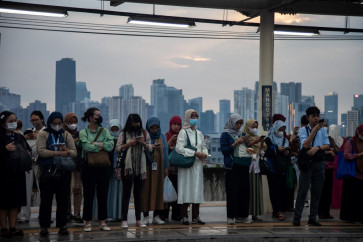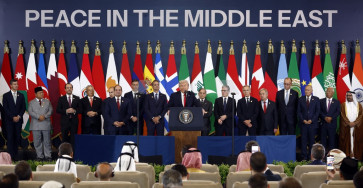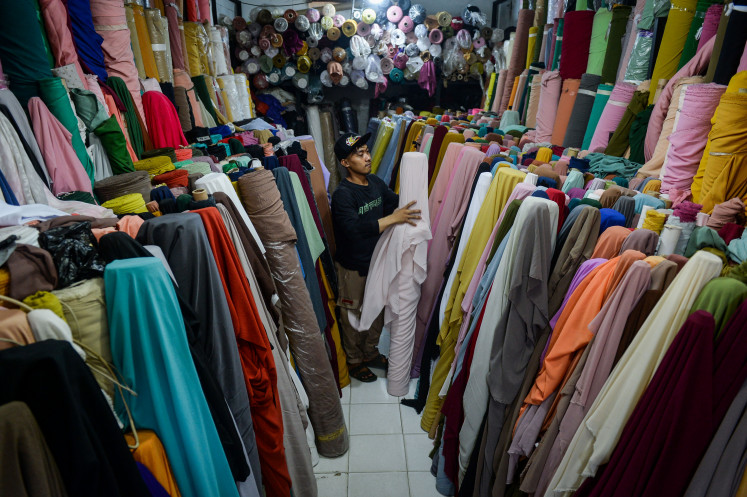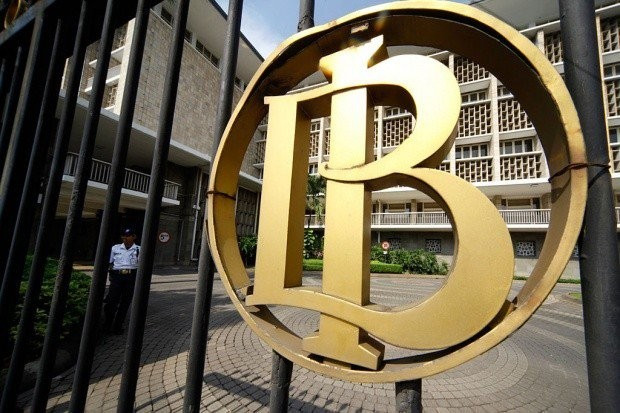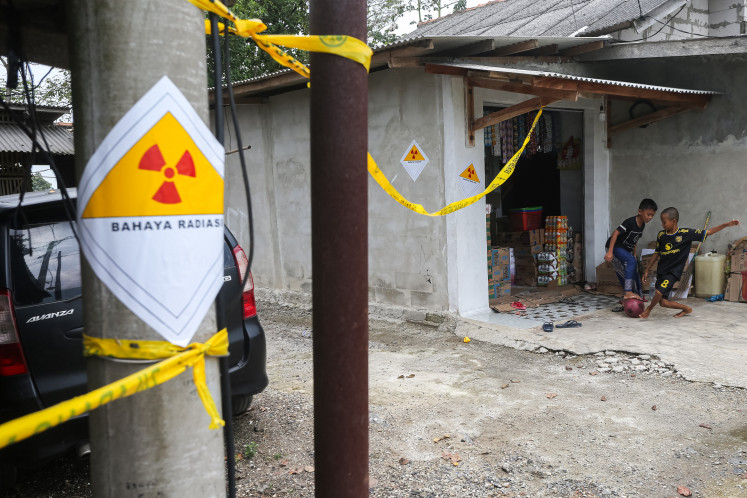Popular Reads
Top Results
Can't find what you're looking for?
View all search resultsPopular Reads
Top Results
Can't find what you're looking for?
View all search resultsPDI-P is just a symptom
Political parties have become effective tools for the elite—whether civilians, military or business tycoons—to maintain and expand their influence.
Change text size
Gift Premium Articles
to Anyone
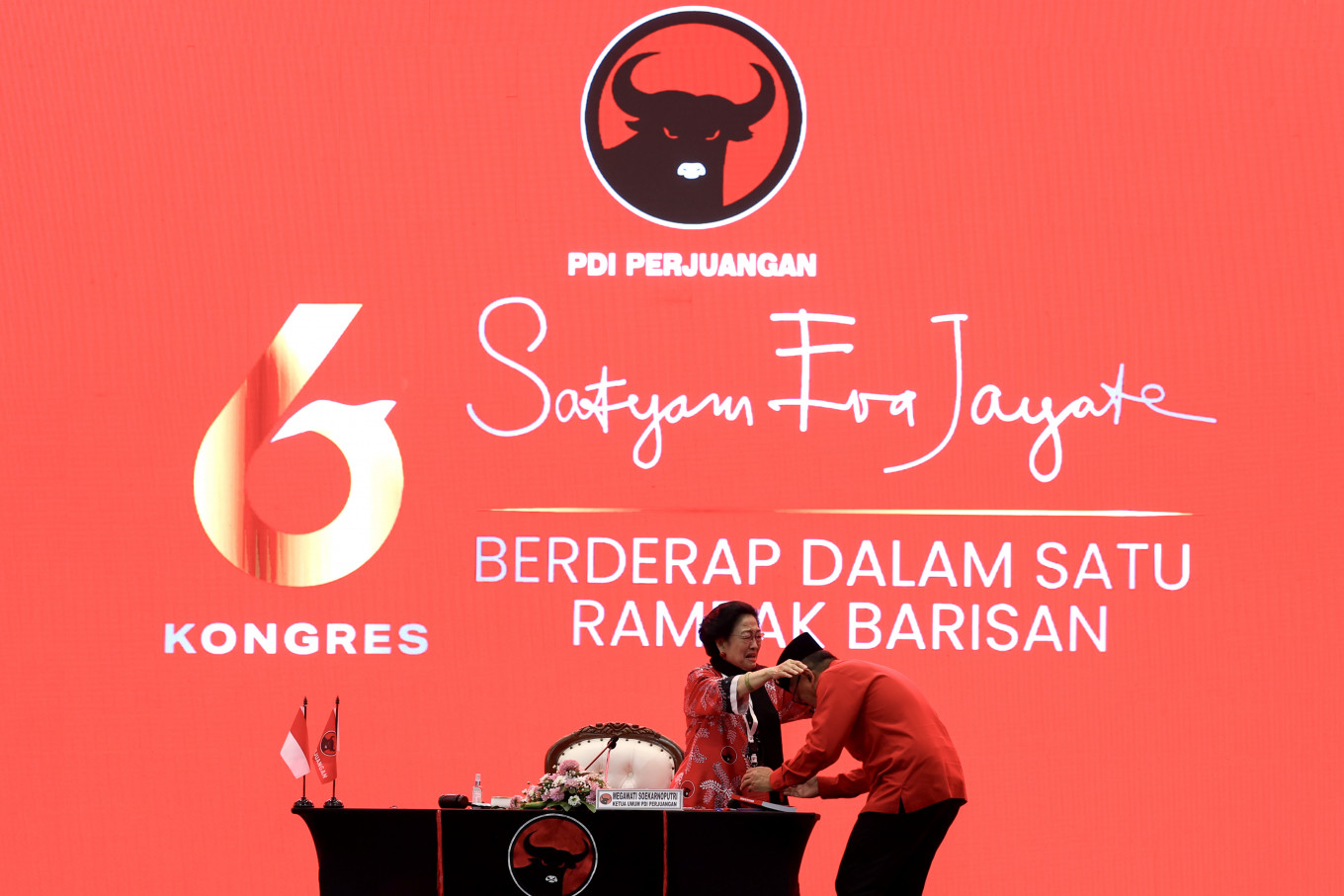 Indonesian Democratic Party of Struggle (PDI-P) chairwoman Megawati Soekarnoputri welcomes party secretary-general Hasto Kristiyanto on Aug. 2 before the closing session of the party congress in Nusa Dua, Bali. Hasto was convicted of bribery on July 25, just days before his appearance at the congress, but then received an amnesty from President Prabowo Subianto. (Antara/Monang Sinaga)
Indonesian Democratic Party of Struggle (PDI-P) chairwoman Megawati Soekarnoputri welcomes party secretary-general Hasto Kristiyanto on Aug. 2 before the closing session of the party congress in Nusa Dua, Bali. Hasto was convicted of bribery on July 25, just days before his appearance at the congress, but then received an amnesty from President Prabowo Subianto. (Antara/Monang Sinaga)
W
ith her recent reelection as chairwoman of the Indonesian Democratic Party of Struggles (PDI-P), 78-year-old Megawati Soekarnoputri is poised to become the lifetime paramount leader of the country’s largest party and cement a political dynasty for herself, although her loyal followers claim her leadership is needed most to maintain unity.
However, she is far from alone in consolidating political power through family. This trend is also evident with other prominent figures including President Prabowo Subianto and former presidents Susilo "SBY" Bambang Yudhoyono and Joko "Jokowi" Widodo, who have been actively building their own political dynasties. Media tycoon Surya Paloh has similarly established his own political party.
Both SBY and Jokowi are expected to promote their sons in the 2029 presidential election. By then, Prabowo will be 78, while his own son, a fashion designer, has shown no interest in politics.
Megawati, the daughter of Indonesia’s founding president, Sukarno, has ruled the PDI-P with absolute power for 32 years. Her supporters believe that only Sukarno’s descendants have the right to safeguard Marhaenism, the party’s ideology that promotes national unity, culture and collectivist economics as an alternative to liberalism. Megawati rose to prominence in the 1990s as a symbol of the youth-led protests against President Soeharto, which ultimately led to his downfall in 1998.
In 1999, her party won the legislative election, but she lost the presidency to Abdurrahman "Gus Dur" Wahid, serving as his deputy instead. She became president in 2001 after his impeachment and served until 2004. Despite losing the presidency to SBY in 2004 and 2009 races, she remains a "kingmaker", with a significant role in elevating politicians like Jokowi to the highest office. Megawati’s long-standing control over the PDI-P includes five years before Soeharto's fall.
The nation should be concerned about this practice, although halting political dynasties seems nearly impossible. Hope once rested with the smaller Indonesian Solidarity Party (PSI), led by young politicians. Despite its poor performance in a recent election, the party remains attractive to influential figures, including Jokowi.
The PDI-P has been in the top three parties in all six elections since 1999, making Megawati a major force in Indonesian politics. Her rise has coincided with the emergence of powerful family dynasties at both the national and regional levels. She has not yet named a successor, but her two sons and daughter are the strongest candidates.
Golkar is an exception as it does not rely on a political dynasty, but the party is not an exemplary model either as its leadership succession has always been decided by money.
Political parties have become effective tools for the elite—whether civilians, military or business tycoons—to maintain and expand their influence. Power is concentrated in the hands of a small number of oligarchs, and Megawati is a part of this trend.
While Indonesia is recognized as the world's third-largest democracy, and citizens are meant to hold the highest power, the reality is that political and economic oligarchs are the true controllers. Democracy often serves as a mere formality, a practice also seen in some more advanced nations.
Megawati may wrongly assume that her loyal supporters will stay with the party after her death. However, SBY, with his Democratic Party, and Jokowi, through his control of the PSI, appear better prepared for the 2029 election given Prabowo’s likely decision not to seek another term because of his age.
Many are still unaware or in denial of the fact that Indonesia is now controlled by a few powerful families and resembles an oligarchy. This is a concerning reality that extends beyond just Megawati and the PDI-P.
While fighting political dynasties is sapping our energy, a combination of legal reform, institutional strengthening, public awareness and media scrutiny offers the most promising path toward a more inclusive and representative democracy.


